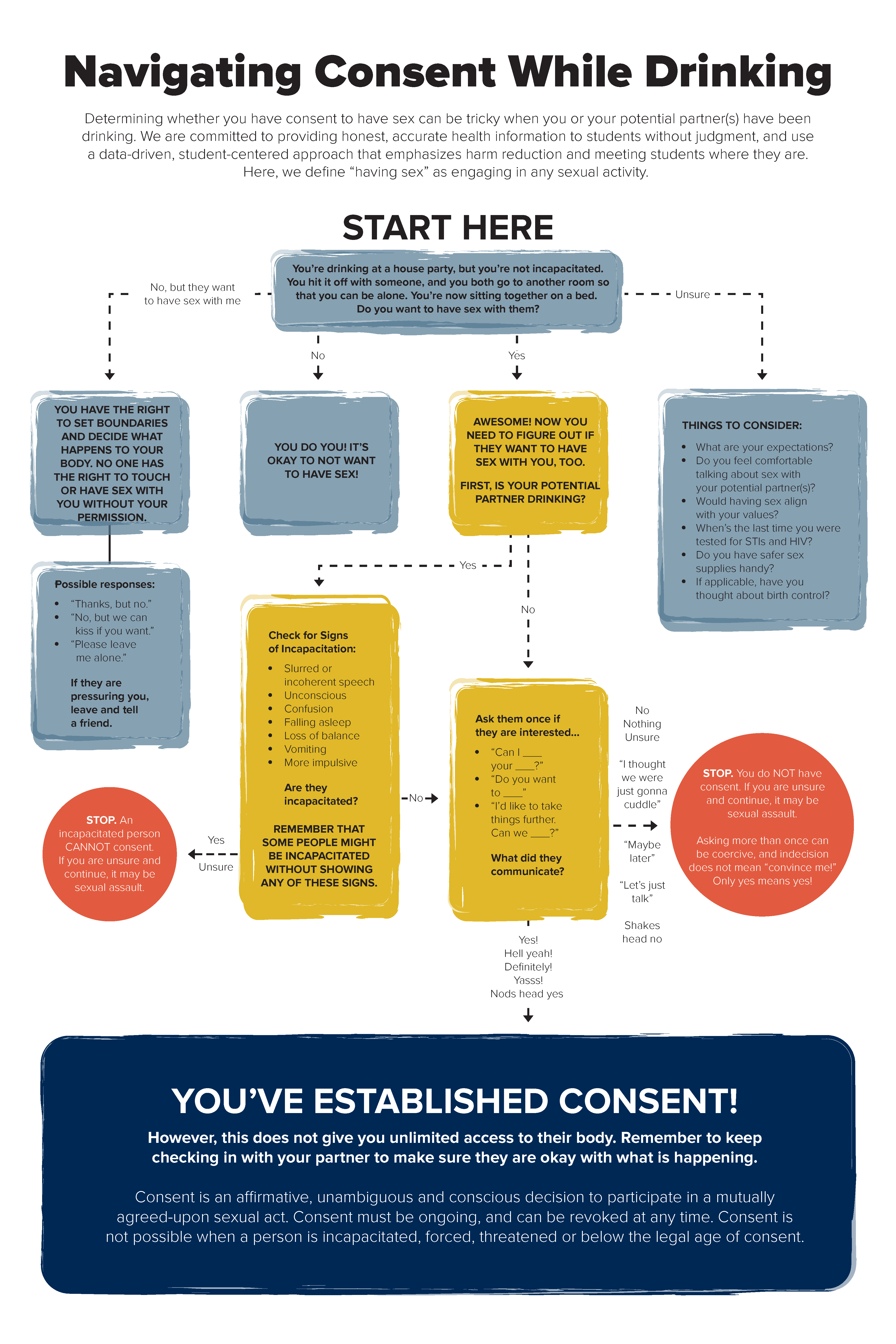Sexual Misconduct Reporting & Referral Forms
Consent
UW Oshkosh follows the Wisconsin State Statute 940.225 definition of consent, which states that consent means:
“words or overt actions by a person who is competent to give informed consent indicating a freely given agreement to have sexual intercourse or sexual contact. The following persons are presumed incapable of consent:
(a) A person suffering from a mental illness or defect which impairs capacity to appraise personal conduct.
(b) A person who is unconscious or for any other reason is physically unable to communicate unwillingness to an act.”

Alcohol and Consent
If you are initiating sexual activity, you’re responsible for obtaining consent. In the case that either person is under the influence, the definition of consent — clear, ongoing, coherent, and voluntary — is just as important as ever.
Consenting under the influence is a tricky subject. Consumption of alcohol doesn’t automatically mean that consent isn’t possible. It is possible for all parties to drink and remain coherent enough to consent. However, alcohol DOES make it harder to determine consent.
If you and others are under the influence, you should understand the risks when assessing whether you have consent to engage in sexual activity. If either party is under the influence of drugs or alcohol, it’s even more important to communicate your own boundaries and be extra sensitive to your partner’s boundaries. If there is ever any doubt, confusion, or mixed messages, DON’T engage in sexual activity.
Consent cannot be given if a person is incapacitated by alcohol and/or drugs.
Alcohol and drugs can be used as a way to incapacitate a person so that they are less likely to say no or fight back. But that does not mean you are to blame if you are assaulted, even if you have been drinking or taking drugs.
Some obvious signs that a person is impaired by alcohol and/or drugs and may no longer make a clear decision about giving consent are:
- If a person is stumbling or falling down;
- If a person cannot stand or walk on their own;
- If a person’s speech is slurred or they are not communicating clearly;
- If a person cannot focus their eyes or is confused about what is happening around them;
- If a person has vomited, urinated, or defecated on themselves or around them;
- If a person is sleeping or unconscious, they cannot give consent.
- If someone doesn’t exhibit any of the above signs, but you know that they’ve been drinking or taking drugs, ask something like, “Do you feel clear enough to be making decisions about sex?” And regardless of what your partner says in response to that, if YOU feel they’re not clear enough, then just stop.
It can be difficult to assess if someone is capable of giving consent if you or they have been drinking. When in doubt, it is best to not engage in sexual activity.
*Information adapted from LoveisRespect, The National Domestic Violence Hotline, and Healthline.


